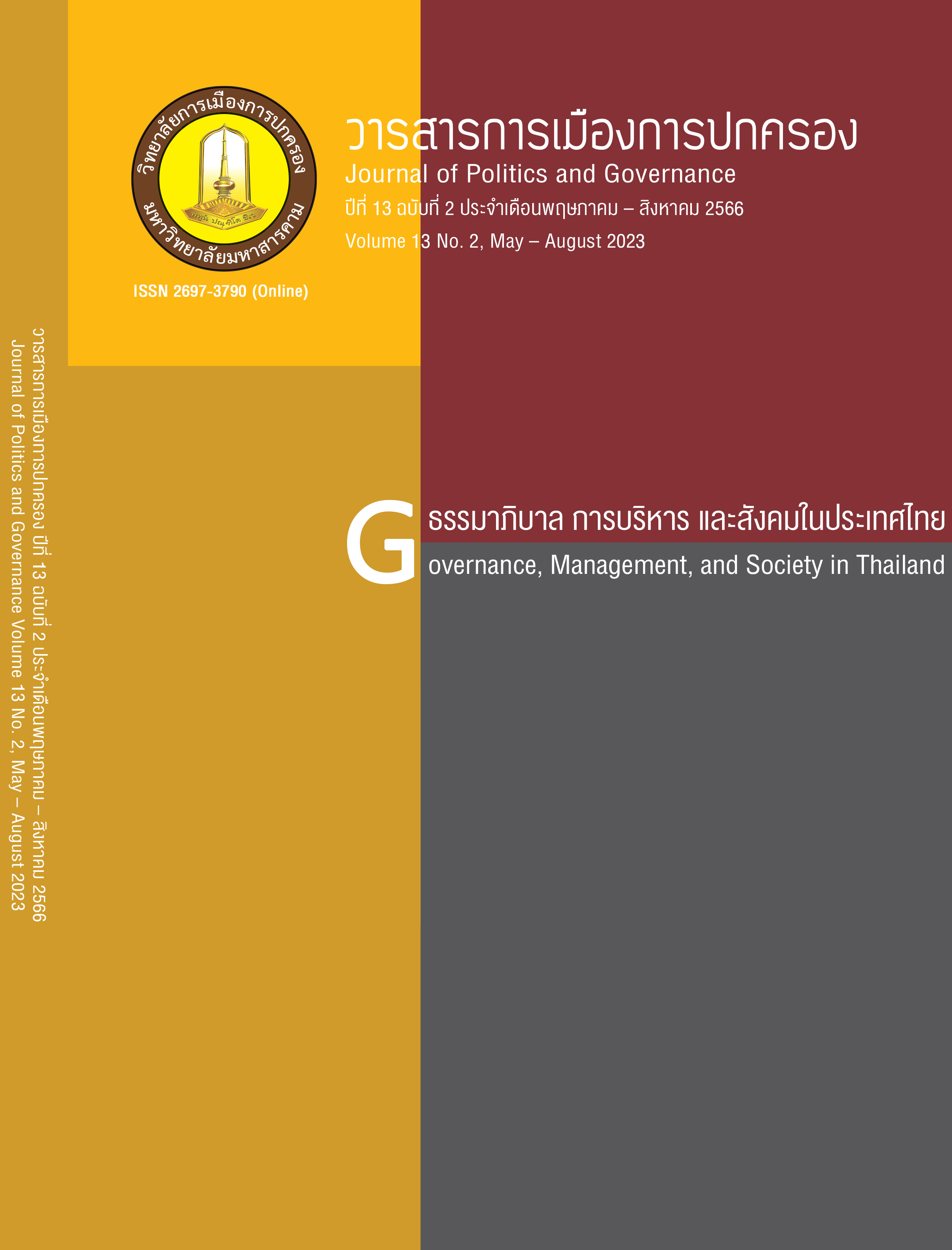Applying special measures for custody of juvenile offenders in drug offences instead of criminal procedure
Main Article Content
Abstract
The purposes of this article were to study rules and conditions, suggest patterns and methods for applying special measures instead of criminal procedure, and suggest amending relevant laws, regulations, and practices of officers in providing justice for juvenile offenders in drug offences. Key informants consisted of the multidisciplinary team including psychologists, social workers, as well as community representatives, inquiry officers, public prosecutors, associate judges, and so on. The results revealed that family and community meeting was conducted in a committee manner in which the meeting was conducted to discuss to seek an approach to settle disputes in accordance with restorative justice. This is an alternative measure used in the process of implementing a rehabilitation plan in the case where juveniles were considered to be able to reform themselves into good people without requiring the criminal procedure. This was to improve juveniles’ behaviors and mitigate or compensate for damages that occurred. In addition, it mainly focused on protecting the maximum benefit of juveniles. The special measure instead of criminal procedure was to divert cases of juvenile offenders in pre- litigation and proceedings in accordance with the Juvenile and Family Court and Procedure Act.
Article Details
References
ธนภัทร ปัจฉิมม์ และคณะ. (2562). ผลสัมฤทธิ์กระบวนการยุติธรรมเชิงสมานฉันท์ในชั้นสอบสวนคดีเด็กและเยาวชน. สำนักงานการวิจัยแห่งชาติ.
นัทธี จิตสว่าง. (2555). วัตถุประสงค์ในการลงโทษ. สืบค้นจาก https://www.gotoknow .org/posts/454719.
นิศรา รัตนเกียรติกานต์. (2558). มาตรการพิเศษแทนการดำเนินคดีอาญา: ศึกษาการมีส่วนร่วม
ของผู้แทนชุมชนในการจัดทำแผนแก้ไขฟื้นฟูในชั้นก่อนฟ้อง. คณะนิติศาสตร์ปรีดี พนมยงค์ มหาวิทยาลัยธุรกิจบัณฑิตย์.
ปุณยวัจน์ ไตรจุฑากาญจน์. (2562). มาตรการพิเศษแทนการดำเนินคดีอาญากับการแก้ไขบำบัดฟื้นฟูเด็กและเยาวชนในกระบวนการยุติธรรม, สังคมศาสตร์และมนุษยศาสตร์, 45(2). คณะสังคมศาสตร์ มหาวิทยาลัยเกษตรศาสตร์.
สุรัสวดี กัลยาสิทธิ์. (2558). มาตรการพิเศษแทนการดำเนินคดีอาญาสำหรับเด็กและเยาวชนที่กระทำผิดในคดียาเสพติด. เชียงใหม่: บัณฑิตวิทยาลัย มหาวิทยาลัยเชียงใหม่.
อภิรดี โพธิ์พร้อม. (2550). ปัญหาความไม่เสมอภาค ในกระบวนการยุติธรรมที่ประชาชนได้รับ. กรุงเทพฯ:ศาลเยาวชนและครอบครัวกลาง.
สำนักงานคณะกรรมการสิทธิมนุษยชนแห่งชาติ. (2550). อนุสัญญาว่าด้วยสิทธิเด็ก. กรุงเทพมหานคร.
Andrew Becrof. (2015). It’s All Relative: The Absolute Importance of the Family in Youth Justice (A New Zealand Perspective). Retrieved from http://www.courtsofnz.govt.nz.
Barnard, C.I. (1968). Organization and management. (Massachusetts: Harvard University, 1968), p.92-102.


